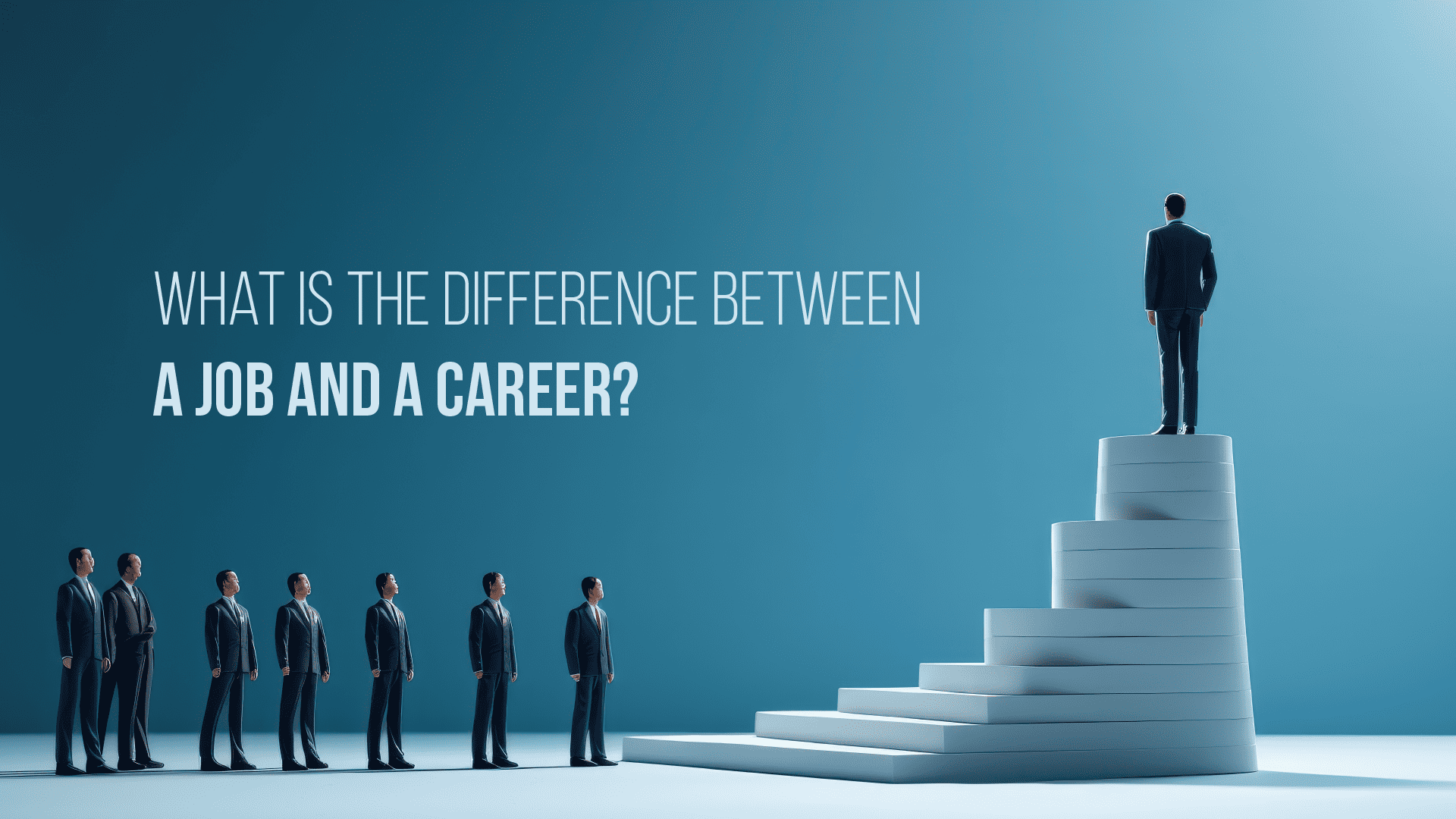You have put in the hard work, survived the vicissitudes of childhood, high school, and possibly college, and finally landed your first job. Congratulations! But does this mean you are now firmly established on a career path? What is a career anyway? Is it not the same as your job? Let us explore these terms ‘job’ and ‘career’ further and see what they mean, what relationship they have with each other, and why that should matter to you.
Topics Covered
- What is a job? What is a career? Is there a difference?
- The relationship between your job and your career
- Jobs that build a meaningful career
- Why does it matter?
Is there a difference between your job and your career?
Before we go any further maybe we need to first understand one thing: Is there a difference between a job and a career? Even though these two terms are used interchangeably, the answer is yes, there is a difference. A job is simply a contract of employment that results in work being performed in exchange for a reward, usually monetary; in the form of a salary or a wage. Having a job can impart you with new skills, or add value to an existing skillset. Jobs are usually short-term, are focused on the accomplishment of a set, finite task, and do not always require specialized training.
A career, on the other hand, is the sum total of your employment and learnings, past and future, in a particular field. Careers often comprise a number of jobs where you can learn, gain experience, make connections and vie for advancement within the chosen field. A career is also viewed in the long-term; something that requires planning and foresight, occasionally spanning across multiple different disciplines or requiring specialized training and education.
Relationship between your job and your career
Having established the difference between a job and a career, let us now explore the relationship they share. Your current job and your career can be closely linked. Your career is often determined by the type of jobs you choose to do, and can help you land a job you wish to do. If you have clarity about the type of work you wish to be doing in the long-term, you can lay the groundwork by choosing the jobs that will enable you for your dream job in the future. You can choose to consciously develop a fixed career path, with career goals, right from your first job.
For example, if you aspire to a future in the IT industry then jobs such as these could help put you on the right path towards developing an IT career.
Jobs that build a meaningful career
It is not unusual for people to work multiple jobs before finding the one they are best suited for. As discussed earlier, the jobs that you opt for have a huge impact on your career. And in order to build a meaningful career, it is important to pursue roles that challenge you and push you to evolve.
Also, not every job opportunity that comes your way will necessarily be a valuable addition to your career. Sometimes, a job can be little more than a short-term employment solution to make ends meet. Though such can be lucrative, they may not always lead to career growth.
In order to build a meaningful career, you need to understand what motivates you beyond just the immediate future. Where do you see yourself in five, ten, or fifteen years? Make your job choices based on the big picture you envision.
Why does it matter?
Finally, let us understand why the difference between a job and career matters. Some have argued that there is little difference between the two; that it is simply semantics and it comes down to your mindset and how seriously you take your work. If you are only looking for employment in exchange for a paycheck, then you are merely clocking in and out of a job. If you are looking to invest fully in your role, with long-term goals and an understanding of where this employment opportunity can take you, then you are developing a career.
Having a complete understanding of the role you are currently performing or will do so in the future, is essential to fully grasp the types of roles you will get to perform in the future. If you are currently working at a job that does not add value to your professional experience and overall development, you may find that your career has hit a dead end.
You need to ask yourself: Is my job helping me build a better future for myself? If the answer is yes, then you are already on the right track, successfully pursuing a career that could make an impact in your life as well as the world. If the answer is no, then you may need to re-examine your career goals and re-align your vision board while things are still under your control.
Are you looking for a job in Information Technology?
See all of our current openings here!
About the Company:
Peterson Technology Partners (PTP) has partnered with some of the biggest Fortune brands to offer excellence of service and best-in-class team building for the last 25 years.
PTP’s diverse and global team of recruiting, consulting, and project development experts specialize in a variety of IT competencies which include:
- Cybersecurity
- DevOps
- Cloud Computing
- Data Science
- AI/ML
- Salesforce Optimization
- VR/AR
Peterson Technology Partners is an equal opportunities employer. As an industry leader in IT consulting and recruitment, specializing in diversity hiring, we aim to help our clients build equitable workplaces.





